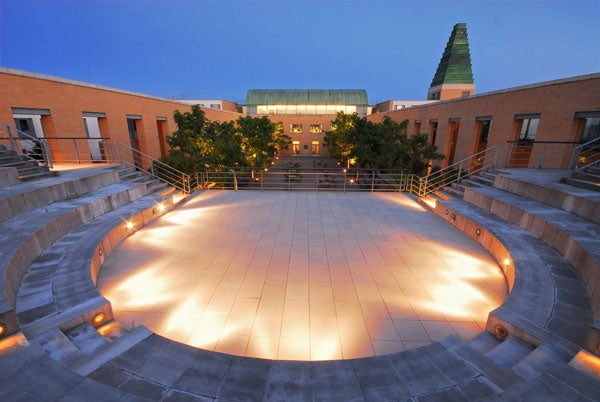Alumni contacts can make all the difference when it comes to looking for a job

Your support helps us to tell the story
From reproductive rights to climate change to Big Tech, The Independent is on the ground when the story is developing. Whether it's investigating the financials of Elon Musk's pro-Trump PAC or producing our latest documentary, 'The A Word', which shines a light on the American women fighting for reproductive rights, we know how important it is to parse out the facts from the messaging.
At such a critical moment in US history, we need reporters on the ground. Your donation allows us to keep sending journalists to speak to both sides of the story.
The Independent is trusted by Americans across the entire political spectrum. And unlike many other quality news outlets, we choose not to lock Americans out of our reporting and analysis with paywalls. We believe quality journalism should be available to everyone, paid for by those who can afford it.
Your support makes all the difference.What exactly are you buying when you study at a "better class" of university? The answer is you are purchasing better teaching and facilities – and better peers. "The people one bumps into as a student can come in very useful in later life, and business schools know this," says Adrian Furnham, Professor of Psychology at UCL, an expert on the workplace.
When good jobs for MBA graduates are fiercely fought over, the saying "It's not what you know, it's who you know" rings truer than ever. Many business schools accentuate the strength of their alumni network, and the way in which they support it, as an integral part of the MBA package.
"UK schools are boosting their efforts to meet increasing student expectations beyond the course itself," says Jeanette Purcell, chief executive of the Association of MBAs. According to Amba, the key elements needed for a flourishing alumni network are frequent opportunities for networking, both online and in person, easy access to a good range of alumni groups and events wherever you are in the world, and continuing support with career and personal development.
Oxford's Saïd Business School is only 14 years old. However, its alumni have access to the Oxford Business Alumni network which includes non-business students from all over Oxford University with an interest in business. "This gives us the advantage of a far broader mix," says Stacey Pulley, head of alumni relations at Saïd.
"The Oxford Business Alumni network has 7,000 members, half of whom are business school graduates and half from across the university. Alumni regularly come back to help with recruitment and careers."
Now working for a Spanish bank in the City, César Ortega-Domene, 32, graduated from Saïd in 2004, and is involved in the alumni network as president of the London chapter. After leaving Oxford, he landed a good job due to a contact he made with a speaker from the corporate world at a student event during his MBA. Keen to do something for the business school in return, he has taken part in career panels. As his company is expanding, he is also looking hard at potential recruits among students of his former business school. "A shared learning experience can be an important element when assessing an applicant's strength," he says.
At Cambridge University's Judge Business School, MBA graduates are also able to make friends with the wider university's alumni. "The school provides its graduates with a private, online social network, known as the 'Common Room', which links to other popular social networks," says Joelle du Lac, Judge's director of external affairs. "This multiplies the possibilities for making interesting contacts. In addition, we have successful alumni from companies such as Google and Saatchi & Saatchi who regularly return to give masterclasses to MBA students."
Taking advantage of an alumni network should start before you apply," says Purcell. "When choosing a school, the strength of the alumni network and what the school offers after graduation in terms of support should be an important factor in your decision, particularly in a tight jobs market. Amba recommend students get in touch with alumni when they are considering a school to ask what the experience was like on the MBA and what services and support they receive after graduating. That way they get a frank assessment."
At Durham Business School, its alumni service runs a mentor scheme for all students, linking them with a carefully selected mentor from its 11,000-strong alumni. "Mentors can assist in a range of ways, from sharing their own career experience to information on how to budget, time management and the local way of life in a specific country," says Sarah Menday, Durham's alumni co-ordinator.
"Students often don't pay enough attention to alumni services and overlook the fact that the network they can access after they graduate could be extremely valuable to them," says Purcell. "You will need an alumni network throughout your career. Alumni services are in most cases free resources. In this competitive world, you need all the help you can get."
Join our commenting forum
Join thought-provoking conversations, follow other Independent readers and see their replies
Comments